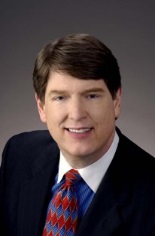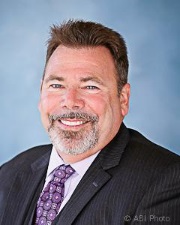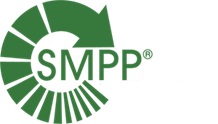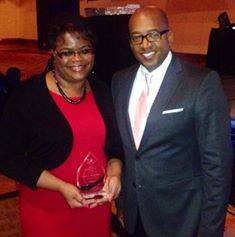
| Archive | Printer Friendly Version | Send to a Friend | www.conventionindustry.org | Follow Us: |
November 2014
In This Issue
 |
||
November 2014
|
||
In This Issue | ||
| Featured Article | ||
| Recertification | ||
| Commentary | ||
| CMP Program News | ||
| APEX - Standards and Best Practices | ||
| CMPs in the News | ||
| CMP on the Road | ||
| On The Move |
|
Ebola, Other Disasters and Your Meeting:
Guidelines for Dealing with Existing Contracts and Preparing Future Contracts
As government agencies in the United States and around the world discuss quarantines and restrictions on travel to cities and states where Ebola has been diagnosed, meeting sponsors are handling concerns expressed by their attendees about the hazards of air travel, both domestically and to other countries. In short, many meeting sponsors are fielding calls from worried attendees wondering about their safety in traveling to meetings in cities and countries where Ebola, or other infectious diseases are spreading, and boards may be asking planners what course of action can be taken if the spread of a disease whether real or imagined become an issue for their meeting. While concerns about the effects of Ebola to meetings seem to be fading for the moment, any issue like this is a good time to look at your contracts and make sure you are covered for the future. Contract law provides that, absent wording to the contrary, either party can terminate their performance obligations is that party’s performance is made impossible, commercially impracticable, or the purpose of the contract is frustrated by supervening events outside that party’s control making the value of performance worthless to that party. These legal principles apply by default when a supervening act or occurrence affects the meetings and the parties did not allocate the risk and consequences in the contract. Whether specific concerns about a crisis rise to the level of any of these three standards must be analyzed on a case by cases basis while considering known facts and the terms of your contract. This article discusses what steps meeting professionals should take when assessing whether a meeting should be cancelled based on current events and whether they have the right to terminate their contracts without liability or potential owe cancellation damages. CONDUCT PROPER DUE DILIGENCE Turning on the news channels, scanning blogs and reading newspaper headlines is not for the faint of heart. Current headlines are screaming at us about Ebola coming to the United States. Although the persons being affected currently are all healthcare professionals, that scenario can change overnight. As of this writing Ebola is being contained within the United States and we all hope that remains the case. Healthcare professionals are debating and having disagreements on how Ebola is spread and how an individual can contract Ebola. Thankfully the nation is keeping the lid on Ebola and the numbers of patients who verifiably have the disease are small. Nevertheless, the traveling public is understandably nervous. Fears of getting on a plane with a person who has been exposed to Ebola are not far under the surface of the conscience of many travelers. Whether these fears are rational or irrational remains to be seen. What’s a planner to do when association or company leaders suggest that the meeting be cancelled or moved due to concerns for a fall-off in attendance because headlines are scary? The decision to cancel or relocate a meeting to another location is a serious one. There are legal and financial risks regardless of the decision made and there are no easy answers. Before a decision is made planners must conduct proper due diligence. Here are some suggested steps:
 John S. Foster, Esq., CHME, is an attorney and counsel whose firm Foster, Jensen & Gulley specializes in the legal aspects of meetings and conventions, trade shows and events, and association management. He has been an associate or general counsel for more than four hundred (400) national and regional associations and companies since 1986 and has been named as one of the 25 most influential people in the meetings industry by MeetingNews. His peers have also voted John a Special Recognition Award as "Corporate Member of the Year" through the Georgia Society of Association Executives. PCMA Members voted John special recognition as its "Author of the Year" for his frequent contributions to Convene magazine. John has also been selected as a Subject Matter Expert (SME) for the MPI peer-to-peer assistance program, a speaker at the CMP Conclave, and a Platinum Speaker for Meeting Professionals International. John S. Foster, Esq., CHME, is an attorney and counsel whose firm Foster, Jensen & Gulley specializes in the legal aspects of meetings and conventions, trade shows and events, and association management. He has been an associate or general counsel for more than four hundred (400) national and regional associations and companies since 1986 and has been named as one of the 25 most influential people in the meetings industry by MeetingNews. His peers have also voted John a Special Recognition Award as "Corporate Member of the Year" through the Georgia Society of Association Executives. PCMA Members voted John special recognition as its "Author of the Year" for his frequent contributions to Convene magazine. John has also been selected as a Subject Matter Expert (SME) for the MPI peer-to-peer assistance program, a speaker at the CMP Conclave, and a Platinum Speaker for Meeting Professionals International. |
|
Why do I need to recertify my CMP?
Having the CMP after your name tells people you have mastered the knowledge needed to be a successful meeting professional. These initials also tell your colleagues and customers that you have pledged to stay current in the meetings industry by recertifying this knowledge every five years. How has the CMP Program changed? If you achieved or recertified your CMP prior to 2011, there are a few changes you should be aware of. Just as the industry has evolved, so has the knowledge needed to be a successful meeting professional. What you may remember as the "Blueprint" is now the "CMP International Standards (CMP-IS)." The CMP-IS is comprised of 10 domains. These domains identify the subject matter expertise you should have as a CMP; therefore the learning objectives of all of your continuing education activities must be aligned with one of these domains. The recertification requirements have changed too. You no longer need a certain amount of points in various activities. Now you have three options:
In addition, you must demonstrate that you have been employed as a meeting professional for 36 months in the past five years. How can I align my continuing education activities with the CMP International Standards? Download a PDF of the CMP-IS by clicking here. Often a session’s content will align with more than one of the 10 domains but you only have to report one. Do I have to report CEs for each of the 10 domains in the Standards? No. You should select CEs for the domains in which you have the least experience or for those domains in which you want to expand your knowledge. Where can I find CE activities? Many industry-related organizations, including Convention Industry Council member organizations, offer both face-to-face and online activities that will count for recertification credit. Often these organizations have had their activities reviewed by CIC prior to the event. In these cases, the host organization will indicate the domain in which CIC has indicated that their activity aligns. Should I only attend activities that have been pre-reviewed by CIC? No, as long as an activity’s learning objectives align with the CMP-IS, it will count for recertification credit. Can CIC review the sessions I’ve attended to see if they will be approved for credit? While CIC is not able to pre-review individual activities you’ve attended prior to submitting your recertification application, we do review a number of organizations’ education activities to ensure they align with the CMP-IS. These organizations will note in their marketing materials if their program has been reviewed by CIC and whether it aligns with the CMP-IS. Do webinars or online courses count? Yes, as long as you can align the learning objectives with one of the 10 domains, it will be approved for credit. Can I use classes from a college course I attended? Yes, as long as you can align the learning objectives with one of the 10 domains, it will be approved for credit. Remember that activities must be meeting industry-related. So, for instance, a class on general marketing theories would not count for credit but a course on marketing a conference or event would. Does a Degree in Communications (or Marketing, Public Relations, Business, etc.) count for Option 2 of Section I – Professional Experience? Your higher education degree must be industry-specific to count for CMP recertification. How long does it take to have my recertification application reviewed and approved? Please allow 6-8 weeks. My certificate expired in 2011, can I still recertify? No. You must recertify every five years. In fact, CIC gives you a one-year grace period to submit your application after your end date has passed. After your grace period ends, however, you must take and pass the exam to be CMP certified. I’ve been on my job and in the industry for 20 plus years, do I still have to complete the recertification application? To remain a CMP, you must recertify every five years. Those who are retired, however, may request Emeritus status. Emeritus status is an honorary status CIC bestows on those who have been actively certified and then retire from the field. For information, please click here. For complete information on recertifying your CMP, please download the CMP Recertification Handbook here. |
 I’m not what you would call your "typical" CMP. I don’t plan meetings for a living, but I attend many. As the current President-Elect for the San Diego Chapter of MPI, I’m very involved in the meetings and events industry. In my day job, I own a company called Sterling Rose Transportation. We are a full-service chauffeured transportation company that focuses on the needs of the meetings and events industry. I founded it 10 years ago when I acquired a limousine company in Temecula, California. The Temecula Valley is known as Southern California’s Wine Country, and our business was about weddings and wine tours, limousines and limo coaches. Then I joined MPI. I’ve been a member of MPI for about seven years. Prior to that, I didn’t even know there was such a thing as the meetings and events industry. With SDMPI, I was asked to volunteer almost immediately and jumped at the opportunity. Being new to the industry, I thought that having a reason to reach out to contact chapter members would help gain exposure for Sterling Rose. My company became a preferred partner to a local hotel and soon learned about the world of manifests and group transportation. I’m not what you would call your "typical" CMP. I don’t plan meetings for a living, but I attend many. As the current President-Elect for the San Diego Chapter of MPI, I’m very involved in the meetings and events industry. In my day job, I own a company called Sterling Rose Transportation. We are a full-service chauffeured transportation company that focuses on the needs of the meetings and events industry. I founded it 10 years ago when I acquired a limousine company in Temecula, California. The Temecula Valley is known as Southern California’s Wine Country, and our business was about weddings and wine tours, limousines and limo coaches. Then I joined MPI. I’ve been a member of MPI for about seven years. Prior to that, I didn’t even know there was such a thing as the meetings and events industry. With SDMPI, I was asked to volunteer almost immediately and jumped at the opportunity. Being new to the industry, I thought that having a reason to reach out to contact chapter members would help gain exposure for Sterling Rose. My company became a preferred partner to a local hotel and soon learned about the world of manifests and group transportation.With MPI, I began attending nearly every event I could, mainly for the purpose expanding my knowledge of the industry and, of course, for networking opportunities. With each passing year, my role in the chapter was elevated. I became a Committee Chair, Director, Vice President and now serve as the President-Elect for the chapter. The more I became involved, the more my company changed direction to focus on the meetings and events industry. We began selling limousines and replacing them with sedans and our limo coaches became mini-coaches. With my chapter involvement, I met new people, and we became a preferred provider to more hotels in San Diego. We relocated our business from Temecula to Escondido, located in North San Diego County, to be more closely located to our market. A couple of years ago, I realized that although I had been attending SDMPI education sessions for the primarily for the purpose of networking these past years, I had also been getting an education. In addition, it occurred to me that many of the clients we were now working with were CMPs. I thought, "Wouldn’t it be great to show my commitment to the Industry by pursuing my CMP, just to let them know that I understand what is involved in the entire scope of putting a meeting together?" I could say, "I understand that transportation is a small but vital role in the entire scheme of your event. Let me manage that for you, and you can focus on the rest of the program." It seemed to me that hearing those words from someone that obtained their CMP would carry more weight than from someone who was just giving a sales pitch. I decided to move forward and submitted my application for the CMP exam. I was approved and immediately signed up for our CMP study group at SDMPI. It had been many years since breaking out a textbook and highlighter, but it all came back pretty quickly. I worked hard, attending all of the study group sessions and took the mock exam. I felt very prepared, especially for someone that does not plan meetings day in and day out. I was part of the first computerized testing group, so we still all had to wait eight weeks for our results. When I received the email telling me that I had passed, I was ecstatic. I believe that this process has opened the door to additional opportunities for my company. It reflects well on the hotels that we serve when they hand their clients my business card and can say that the preferred transportation company president is a CMP. I have attended some of the SDMPI study group sessions when recent CMPs are brought in to serve on a panel. My message is that if someone like me with little prior knowledge of the industry can study the material and pass the exam, then surely those that live and breathe it day in and day out can do the same. I am very happy I made the decision to obtain my CMP and would recommend the same to industry suppliers out there. |
|
The Convention Industry Council (CIC) is proud to announce our new CMP and CMP-HC online application and submission process will be available starting January 1, 2015.
With this new application process, those applying to sit for the CMP or CMP-HC will no longer be tied to specific application, registration or scheduling deadlines. Education activities and employment experience will be tracked as they are accumulated and once the prerequisites are met, the application can be submitted for approval! Starting on January 1, those applying for the CMP or CMP-HC will be able to take advantage of these new features:
All CMPs already have an online profile – so please do not recreate one! Starting January 1, you will be able to login and start tracking documents including continuing education. |
 Policies and Procedures Policies and ProceduresSustainable Planning – Don’ts and Dos – Look to the Standards On: Policies and Procedures Don’t convene a green team for each event! If your sustainability checklist has this, run the other way! Planners don’t need the extra work of managing a committee to plan a sustainable event. This is not required by the standards. Do comply with planner requirements of APEX/ASTM standards! Start by reading the planner requirements near the beginning of each of the 9 standards that can be accessed at www.conventionindustry.org/StandardsPractices/APEXASTM/GettingAPEXASTM.aspx. If you read the standards, you’ll know what is expected, so you can build or buy a set of policies and procedures to meet the requirements. CIC making it easier: If you don’t have the time or expertise to create your own policies and procedures, get the SMPP® using the CIC50 discount code at www.SustainableMeetingPlanner.com. If you have a question on the Don’ts and Dos according to the standards, send it through the Contact Us form at www.SustainableMeetingPlanner.com. |
 LaVette C. Henderson,CMP, Director of Meetings and Operations for the National Dental Association, is the 2014 National Coalition of Black Meeting Planners Meeting Planner of the Year! LaVette, who earned her CMP in 2013, has worked in the meetings industry for 20 years. LaVette was honored with this award, which is recommended by one’s organization leadership and peers, for excellence in meeting planning. It also honors her commitment to the meeting planning profession and her years of industry support to NCBMP. LaVette C. Henderson,CMP, Director of Meetings and Operations for the National Dental Association, is the 2014 National Coalition of Black Meeting Planners Meeting Planner of the Year! LaVette, who earned her CMP in 2013, has worked in the meetings industry for 20 years. LaVette was honored with this award, which is recommended by one’s organization leadership and peers, for excellence in meeting planning. It also honors her commitment to the meeting planning profession and her years of industry support to NCBMP.(Photo: LaVette Henderson and Mr. Mike Jackson of Destination DC, courtesy of NDA's Facebook page.) |
|
From the press release, "Each year, the Professional Convention Management Association (PCMA) honors outstanding members for their contributions to PCMA and the meetings industry. PCMA will recognize the winners from the main stage of the 59th PCMA annual meeting: Convening Leaders, January 11-14, 2015, in Chicago, IL.
"Each year we continue to be amazed by the accomplishments of our PCMA Achievement Award winners. The individuals and organizations we recognize here today are inspiring leaders, who are making significant contributions to the future of the meetings and events industry," said Deborah Sexton, President and CEO, PCMA."
Here are the CMPs who will be honored by PCMA in January: Distinguished Member of the Year Award
The recipient of the 2014 Distinguished Member of the Year Award is Joy Womack, CMP, Director, Event Management, Experient.
Distinguished Meeting Professional of the Year Award
The recipient of the 2014 Distinguished Professional of the Year Award is Carolyn Pund, CMP, CMM, Senior Manager, Global Strategic Meetings Management, Cisco Systems, Inc.
Outstanding Service to a Chapter Award
The recipient of the 2014 Outstanding Service to a Chapter Award is Belinda Keota, CMP, CEM, Meeting Manager, Produce Marketing Association.
To read more about these outstanding CMPs and all of the award winners, please visit PCMA online for the full press release.
|
|
2015 ESPA Annual Conference
January 9-11, 2015 Chicago, IL More information PCMA Convening Leaders January 11-14, 2015 Chicago, IL More information Global Pharmaceutical & Medical Meetings Summit February 10-12, 2015 Philadelphia, PA More information |
|
Hannah Fani, CMP, is now the Managing Director of LaFani Management Consultancy, Dubai, UAE. Frank Fraser, CMP, is now Managing Director for AlliedPRA Destination Management, New York, after many years in the luxury hotel business. Melissa Hahn, CMP, is now the Account Lead at Meetings & Incentives Worldwide, Inc., in Caledonia, WI. She is also on the MPI Chicago Area Board of Directors as Director of Education Conference. Paul G. Horngren, CMP, is now Director of Event Management at Purdue University in West Lafayette, IN. Jenni Kuchenbecker, CMP, is now Director of Conferences and Meetings for the International Association of Providers of AIDS Care. She was previously Director of Conferences & Events at the American Society of Consultant Pharmacists. Lindsey Mayfield, CMP, is now Account Manager, Operations, at JNR Incorporated in Irvine, CA. She was previously Meetings and Conference Manager at a non-profit association.Stephanie Saulnier, CMP, is now a Senior Events Specialist at Genzyme Corporation located in Cambridge, MA. She was previously a Senior Sales Manager at The Charles Hotel in Harvard Square. Virginia Ramos, CMP, has been promoted to Director of Sales at Meliá Sierra Nevada and Meliá Sol y Nieve hotels in Sierra Nevada, Granada, Spain. She was previously the company’s Sales Manager. Richard Rheindorf, CMP, is now Vice President Meetings & Events for ACCOR in Paris, France. Make an awesome career move? Let us help you celebrate! Send the details of your latest career triumph to cmptoday@conventionindustry.org. And while you're at it, be sure to log into www.conventionindustry.org and update your official CMP record. |

|
Convention Industry Council 700 N. Fairfax Street, Suite 510 Alexandria, VA, USA, 22314 Tel: 571-527-3116 |
We would appreciate your comments or suggestions.
Your email will be kept private and confidential.